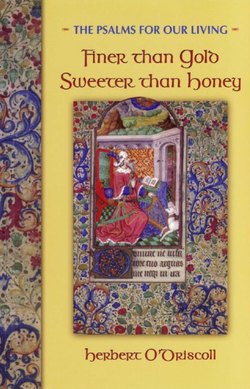Читать книгу The Psalms - Herbert O'Driscoll - Страница 22
На сайте Литреса книга снята с продажи.
ОглавлениеPsalm 15
Lord, who may dwell in your tabernacle?
who may abide upon your holy hill?
To read this psalm is to find oneself recalling George Herbert’s poem entitled “Love.” As well as being a beautiful piece of English poetry, it is also a magnificent spiritual statement. “Love bade me welcome,” writes Herbert, “yet my soul drew back, guiltie of dust and sinne.”
The dialogue between the guest and Love himself continues until the diffident guest is persuaded to accept Love’s insistent invitation. The guest feels he is not worthy. For Love this is irrelevant. “You must sit down, sayes Love, and taste my meat.” If this psalm does indeed bring Herbert’s poem to mind, it may be because of the way the poet challenges the theme of this psalm.
The psalmist stands with me before God’s “holy hill.” I hear the conditions that must be met if I am to reach the tabernacle of God. But as soon as I hear the conditions, I am already defeated! “Whoever leads a blameless life and does what is right.” Blameless! Always? Doing what is right! Always? I am tempted to turn away in frustration from the upward path.
The other conditions are equally uncompromising. “No guile upon his tongue.” Never a slanting of the truth to allow me to survive in some situation? “No evil to his friend.” What of the many hurts I have received, even if unintentional? “In his sight the wicked is rejected, but he honours those who fear the Lord.” Is it so easy to divide our world into the wicked and the good, oneself always numbered among the good?
There are more conditions, but already there are too many. As I walk away from this impossible “hill,” I hear a final assurance given with the best of intentions: “Whoever does these things shall never be overthrown.” But I cannot do all these things. I am already overthrown, and I walk away.
Because I long for God, as does every human being, I turn and gaze sadly back at the mountain. As I look, I see a figure walking down, beckoning to me as Love beckons to the guest in Herbert’s poem. I respond to the gesture and return to the upward path.
Now the invitation is given again, but in a different way. I must still climb if I wish to stand in a holy place, but now I can climb with a companion, one who has done what I cannot do—live blamelessly in this world. I do not have to pretend to be more than I truly am. I have neither to boast of my qualities nor apologize for my shortcomings.
I am accepted in this once unattainable high place, not for my worth but for the incomparable worth of Jesus, who is both companion and Lord.
Are there things you have achieved in life, or personal qualities you have developed, that please you? Make a list of them. Thank God for all the good people and things in your life. Ask God to comfort and support those who feel undeserving and unworthy.
